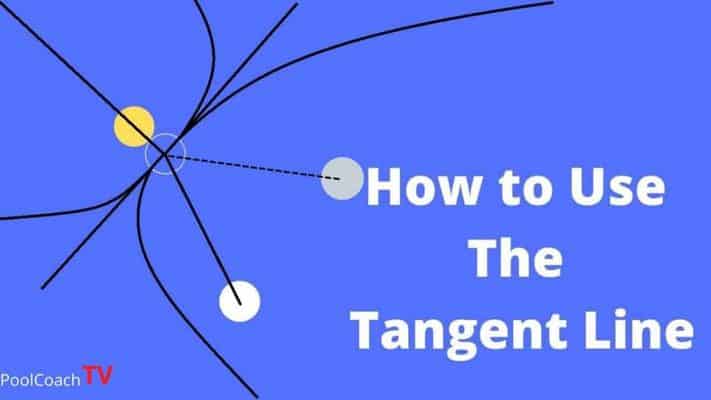The Main Differences Between 8 Ball and 9 Ball Pool
8 ball and 9 ball pool are two popular forms of billiards, but they differ in several key ways.
The level of skill and strategy required to play each game varies.
Choices after the Break
Overall, the main differences between 8 ball and 9 ball pool lie in their objectives, rotation rules, and the level of strategic thinking involved.
8-Ball Pool
Play 8 Ball Pool on a 7-Foot Table
Play 8 Ball Pool on a 9-Foot Table
With a larger playing area, balls are more spread out. The longer shots can be challenging for beginners, but seasoned players may find it gives them more room to maneuver. Positional play is paramount since there’s more ground to cover.
9-ball
Playing 9 Ball Pool on a 7-Foot Table
Fewer balls make for less congestion compared to 8-ball. However, since 9-ball is played in sequence, players need to be precise in controlling the cue ball to get to the next ball in order. On a smaller table, mistakes might be less penalizing.
Playing 9 Ball Pool on a 9-foot table
The game becomes more challenging on a larger table. With balls spread out, players need to control the cue ball’s speed and direction precisely. Any error in position can result in a much tougher next shot.
Which Game is Easier/Harder 8 Ball or 9 Ball?
For non-experts:
- 8-ball on a 7′ table might feel easier since the shots are generally shorter, but the congestion can make strategy and positioning more crucial.
- 9-ball on a 9′ table can be challenging due to the need for greater cue ball control over longer distances and the sequence in which balls must be pocketed.
For professionals:
- Professionals can adapt to different games and table sizes with relative ease, but they might find 8-ball on a 9′ table to be the most strategic due to the number of balls and the larger space.
- Many professionals might find 9-ball on a 7′ table to be relatively easier since they have the skills to control the cue ball on a smaller table, and with fewer balls, there’s less congestion.
In terms of professional tournaments, both games have their challenges, and the difficulty can be more about the opponents they face rather than the game or table size itself.
However, remember that these are general observations. Preferences and opinions about difficulty will vary among players based on individual skills and experiences.
Table expressing the relative difficulty for player of different levels of expertise on different sized tables:
| Player Level | 8-ball (7′ table) | 8-ball (9′ table) | 9-ball (7′ table) | 9-ball (9′ table) |
|---|---|---|---|---|
| Novice | Moderate | Hard | Easy | Very Hard |
| Intermediate | Moderate | Moderate-Hard | Moderate | Hard |
| Expert | Easy-Moderate | Moderate | Easy | Moderate |
Here’s a Brief Explanation for the Rankings:
Novice
For beginners, a 7′ table is generally easier due to shorter shot lengths, but the strategic depth of 8-ball can present challenges. 9-ball on a 9′ table can be particularly tough because of the sequential nature of the game combined with longer shots.
Intermediate
Players with more experience will find the congestion in 8-ball on a 7′ table challenging, while the 9′ table provides more space but requires better cue ball control. For 9-ball, the 7′ table offers less room for errors, while the 9′ table demands precise positioning and longer shots.
Expert
Professionals and expert players can adapt to both games and tables with ease. However, 8-ball on a 7′ table may feel a bit constrained, while the 9′ table offers more strategic depth. In contrast, 9-ball on a 7′ table might feel more straightforward due to fewer balls and the smaller size, but the 9′ table challenges them with longer shots and positioning.
Again, it’s essential to understand that these rankings are generalized and may not reflect every player’s experience.
Frequently Asked Questions (FAQs)
Q: Which pool game is harder to play, 8-ball or 9-ball?
A: It depends on the player’s skillset and preference. 8-ball is generally considered to be more strategic and requires more strategic planning since there are more balls on the table. 9-ball, on the other hand, requires excellent ball control and precise shot-making skills since the balls must be pocketed in numerical order.
Q: Does the table size matter in 8-ball and 9-ball pool?
A: Yes, the table size can have an impact on the game. In 8-ball, playing on a larger table can make it more challenging to pocket balls since there is more distance between them. In 9-ball, a larger table can give players more room to maneuver the cue ball and plan their shots.
Q: What are the basic rules of 8-ball and 9-ball pool?
A: In 8-ball, the basic rules include pocketing all of your designated balls before pocketing the black 8 ball. Players must also call their shots and avoid fouls such as scratching the cue ball or not hitting their designated balls first. In 9-ball, players must pocket the balls in numerical order, with the 9 ball being the last ball to pocket. The player who legally pockets the 9 ball wins the game.
Q: Can you explain how to play 8-ball and 9-ball?
A: In 8-ball, players take turns shooting at their designated balls and attempt to pocket them. If a ball is pocketed, the player continues shooting. If a player pockets the black 8 ball without first pocketing all their designated balls, they lose the game. In 9-ball, players must legally pocket the balls in numerical order. If a player fails to pocket a ball or commits a foul, the turn passes to the other player.
Q: Which game, 8-ball or 9-ball, is more popular?
A: Both 8-ball and 9-ball are popular pool games, but the popularity can vary depending on the region and personal preferences. 8-ball is generally considered the most popular game in many countries, including the United States. However, 9-ball has gained popularity in recent years, especially in professional tournaments.
Q: What is the role of the cue ball in 8-ball and 9-ball pool?
A: The cue ball is the white ball used to strike the other balls in both 8-ball and 9-ball. In 8-ball, the cue ball is used to pocket the other balls, while in 9-ball, the cue ball must make contact with the lowest numbered ball on the table. The cue ball’s position and control are crucial for executing shots in both games.
Q: Can you pocket the 9 ball on the break in 9-ball pool?
A: Yes, it is possible to pocket the 9 ball on the break in 9-ball pool. If a player successfully pockets the 9 ball with the cue ball on the break shot, they automatically win the game. However, if the 9 ball is not pocketed or if the cue ball scratches on the break, the incoming player gets ball in hand and can place the cue ball anywhere on the table.
Q: How are the balls positioned at the start of an 8-ball and 9-ball game?
A: In 8-ball, the balls are racked in a triangle formation, with the black 8 ball placed in the center. The striped and solid balls are placed randomly within the triangle. In 9-ball, the balls are also racked in a triangle, with the 1 ball placed at the front of the triangle and the 9 ball at the center.
Q: Which game is usually played on a larger table, 8-ball or 9-ball?
A: Both 8-ball and 9-ball can be played on tables of various sizes, but 8-ball is typically played on larger tables compared to 9-ball. The larger table size provides more space for the balls and allows for more strategic shot planning in 8-ball.


